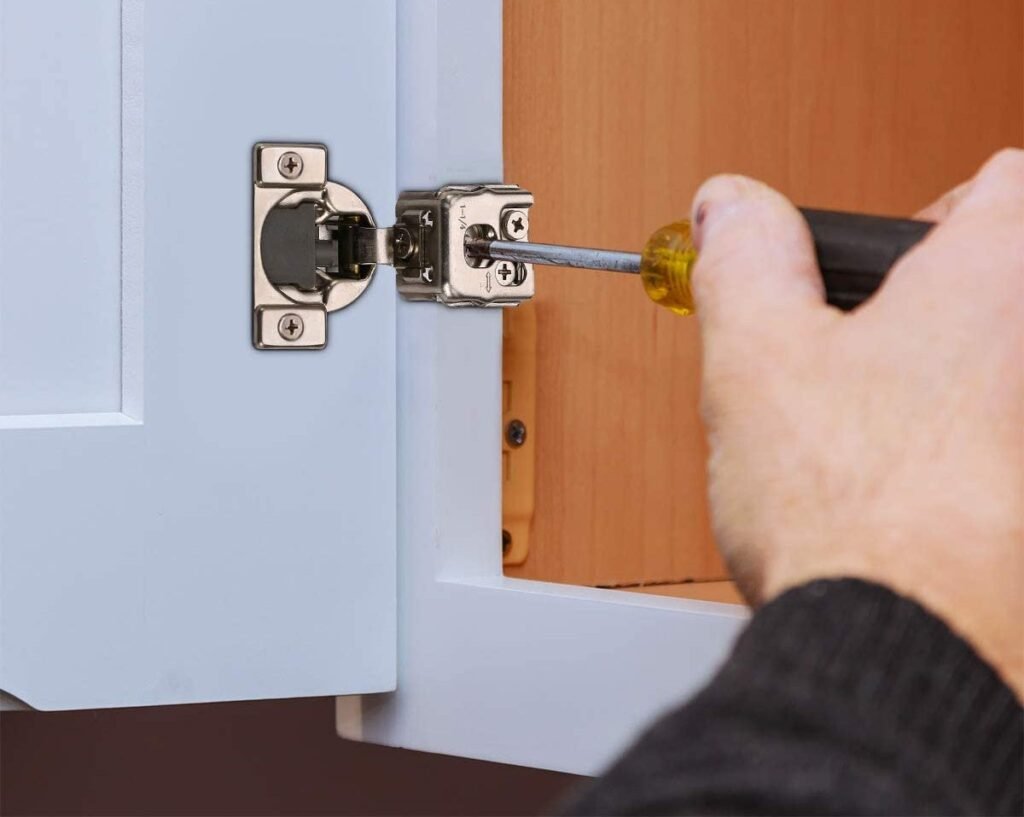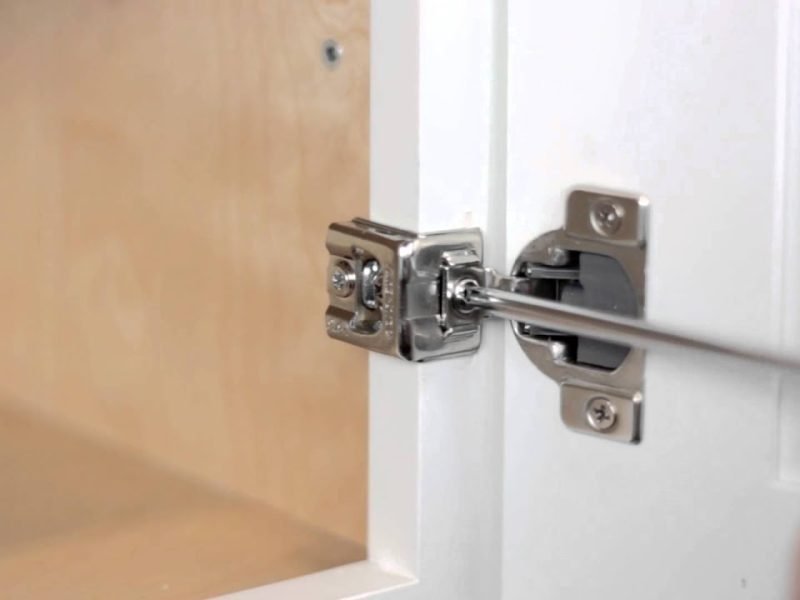When it comes to cabinet hinges, there are a variety of options available on the market. One option that has become increasingly popular in recent years is self-closing hinges. These hinges use a spring mechanism to automatically close the cabinet door when it is pushed to a certain point. While there are certainly benefits to using self-closing hinges, there are also some potential drawbacks to consider. In this blog post, we’ll take a closer look at the pros and cons of using self-closing hinges on your cabinets.
Pros of Using Self-Closing Hinges
Convenience
Perhaps the biggest benefit of using self-closing hinges is the convenience they provide. With self-closing hinges, you don’t have to worry about manually closing your cabinets every time you use them. This can be especially helpful in the kitchen, where you might have your hands full with ingredients or dishes.
Durability
Self-closing hinges tend to be more durable than other types of hinges, such as concealed hinges. The spring mechanism used in self-closing hinges is designed to withstand repeated use, so you can count on them to last for many years.
Improved Safety
Self-closing hinges can also improve safety in your home. If you have small children or pets, for example, self-closing hinges can help prevent cabinet doors from being left open, which could lead to accidents.
Aesthetics
Self-closing hinges can also enhance the appearance of your cabinets. Since they are concealed within the cabinet, they provide a clean, streamlined look that can be very attractive.
Cons of Using Self-Closing Hinges
Cost
One potential drawback of using self-closing hinges is the cost. These hinges tend to be more expensive than other types of hinges, such as standard butt hinges. If you’re on a tight budget, self-closing hinges might not be the best choice.
Installation Difficulty
Installing self-closing hinges can also be more difficult than installing other types of hinges. The spring mechanism requires precise installation in order to work properly, and if you’re not familiar with this type of hinge, you might need to hire a professional to install them for you.
Noise
Self-closing hinges can be noisy, especially if the spring tension is set too high. When the cabinet door slams shut, it can create a loud noise that might be bothersome to some people.
Maintenance
Self-closing hinges require more maintenance than other types of hinges. The spring mechanism can become dirty or damaged over time, which can affect its performance. You’ll need to periodically clean and lubricate the hinges to keep them working properly.
Conclusion
So, should you use self-closing hinges on your cabinets? As with most things, the answer depends on your specific needs and preferences. If you value convenience, durability, and safety, then self-closing hinges might be a good choice for you. On the other hand, if you’re on a tight budget or don’t want to deal with the potential drawbacks of these hinges, you might want to consider other options.

Regardless of which type of hinges you choose, it’s important to make sure they are installed properly and maintained regularly. This will help ensure that your cabinets remain functional and attractive for many years to come.
If you’re looking for high-quality cabinet hinges or need help with installation, Furnihard services can help. Our team of experts can help you choose the right hinges for your cabinets and ensure that they are installed properly. Contact us today to learn more about our services.
Here are ten frequently asked questions about self-closing hinges:
- What is a self-closing hinge? A self-closing hinge is a type of hinge that uses a spring mechanism to automatically close the cabinet door when it is pushed to a certain point.
- Are self-closing hinges expensive? Self-closing hinges tend to be more expensive than other types of hinges, such as standard butt hinges. However, the cost can vary depending on the brand and quality of the hinge.
- Can self-closing hinges be installed on any type of cabinet? Yes, self-closing hinges can be installed on most types of cabinets, including framed and frameless cabinets.
- Are self-closing hinges easy to install? Installing self-closing hinges can be more difficult than installing other types of hinges. The spring mechanism requires precise installation in order to work properly, and if you’re not familiar with this type of hinge, you might need to hire a professional to install them for you.
- Do self-closing hinges require maintenance? Yes, self-closing hinges require more maintenance than other types of hinges. The spring mechanism can become dirty or damaged over time, which can affect its performance. You’ll need to periodically clean and lubricate the hinges to keep them working properly.
- Can the tension of self-closing hinges be adjusted? Yes, the tension of self-closing hinges can be adjusted. This can be helpful if you want to reduce the noise level of the hinge or if you want to make the door close more slowly.
- Are self-closing hinges noisy? Self-closing hinges can be noisy, especially if the spring tension is set too high. When the cabinet door slams shut, it can create a loud noise that might be bothersome to some people.
- Do self-closing hinges come in different colors and finishes? Yes, self-closing hinges come in a variety of colors and finishes, so you can choose the one that best matches your cabinet.
- How long do self-closing hinges last? Self-closing hinges are designed to last for many years. With proper maintenance and care, they can last for the life of your cabinets.
- Are self-closing hinges safe for children and pets? Yes, self-closing hinges can improve safety in your home. If you have small children or pets, for example, self-closing hinges can help prevent cabinet doors from being left open, which could lead to accidents.

